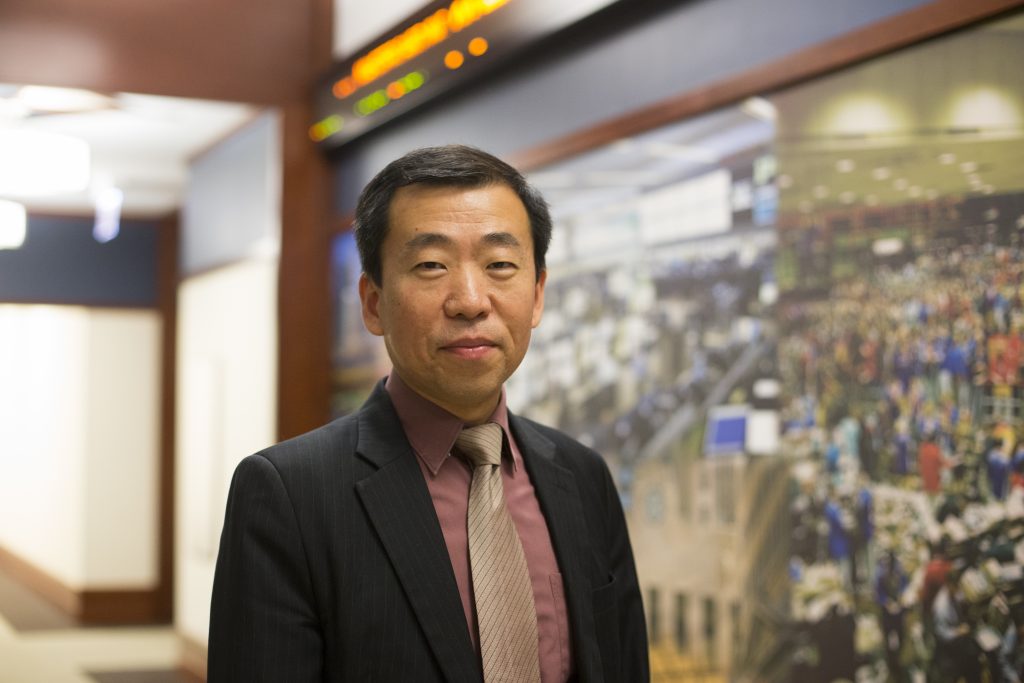
Hongjun Yan embraces unconventional thinking. It’s a mindset that drove him to become an innovative finance professor and scholar, and to join DePaul’s business faculty in July as Driehaus Chair in Behavioral Finance.
Yan’s academic journey began in 1991, when he left his small hometown of Weihui in the Henan province of China to study mathematics at the prestigious Nankai University in Tianjin. China had just resumed stock trading after a 41-year hiatus following the Communist Revolution. “It was a period when the stock market in China started developing from scratch,” Yan recalls. “I soon became fascinated by finance.”
Yan switched his focus to business, earning a master’s in management science, and then entered the London Business School’s finance PhD program. He studied classical finance models, in which investors are assumed to have all the knowledge, analytical power and self-control needed to make rational investing decisions, without the bias of human behavior. But Yan questioned this thinking and found himself drawn to alternative theories of behavioral finance, an emerging academic field that took behavioral biases seriously.
“Growing up in a society that went through dramatic transformation, it is natural for me to be skeptical about mainstream views,” Yan says. “I found it appealing when the research in behavioral finance started challenging the mainstream.” Behavioral finance not only provides a fresh perspective for understanding investor decision-making, he explains, but it also yields new insight into the behavioral influences that affect asset pricing and policymaking.
After obtaining his PhD, Yan taught finance at Yale University for 10 years, where he built an impressive record of research. His scholarly work probes how asset pricing is affected by market imperfections and “bounded rationality,” which are anomalies in investors’ behavior caused by their limited knowledge, information and time. Yan also taught at Rutgers before joining DePaul.
At DePaul, he continues this inquiry while teaching finance classes and leading the Driehaus Center for Behavioral Finance as academic director. The center, which promotes research into the human aspects of financial decision-making, and Yan’s chairmanship are endowed by a 2002 charitable trust gift from Richard H. Driehaus (BUS ’65, MBA ’70, DHL ’02), founder of Driehaus Capital Management and a proponent of behavioral finance. Driehaus applauded the choice.
“Professor Yan is an impressive thought leader whose work is advancing the knowledge and application of behavioral finance theories among students, academics and industry professionals,” Driehaus said.
Yan says his goal at DePaul is to nurture an “elite institute in behavioral finance.” He also relishes challenging a new generation of business students to question conventional thinking about finance.
“I always strive to encourage my students to have a healthy dose of skepticism toward what they learn,” he says. “I want them to learn how to use the models, and, more importantly, when and how not to use those models.”
By Robin Florzak
